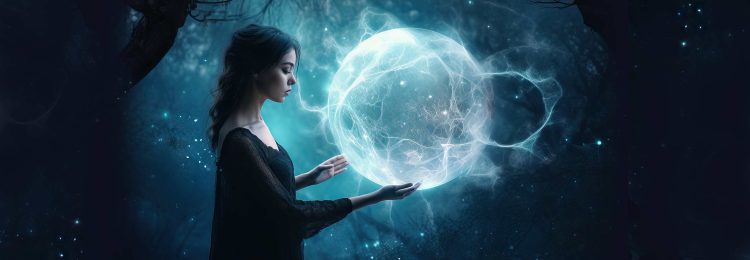: Unraveling the Alleged Satanic Undertones in Game of Thrones: Myth or Reality?

Game of Thrones, the epic fantasy television series based on George R.R. Martin’s “A Song of Ice and Fire” novels, has captured the hearts and minds of millions worldwide. While the show is celebrated for its complex characters, intricate plotlines, and breathtaking cinematography, some conspiracy theories have emerged, suggesting hidden satanic undertones within the narrative. In this article, we will explore these claims, examining whether they hold any merit or if they are mere fantastical musings.
The Complex World of Westeros:
At its core, Game of Thrones is a tale of power, politics, and the pursuit of the Iron Throne in the fictional land of Westeros. The series is rich with religious and mystical elements, including the worship of various gods and the presence of magical beings. Some theorists argue that these fantastical elements are, in fact, a subtle nod to satanic themes, drawing parallels to real-world occultism.
The Red Priestess and the Lord of Light:
One character often singled out in discussions of Game of Thrones’ alleged satanic connections is Melisandre, the enigmatic Red Priestess who worships the Lord of Light. Critics point to her use of dark magic, including blood rituals and shadow assassins, as evidence of satanic influence. However, the series portrays Melisandre as a complex character with her own motivations, and her actions may be more a reflection of the morally gray nature of the show rather than an explicit endorsement of occultism.
Symbols and Imagery:
Conspiracy theorists often analyze symbols and imagery within the series, claiming that certain scenes contain hidden messages or references to satanic iconography. While some symbols may bear a resemblance to occult symbols, it’s crucial to consider the context in which they appear. Game of Thrones draws inspiration from various mythologies and historical sources, and the use of symbolic imagery is likely a narrative choice rather than a deliberate attempt to promote satanism.
The Wall and Beyond:
The mysterious threat beyond the Wall, including the White Walkers and the Night King, has also been interpreted through a satanic lens. Some argue that the undead army represents demonic forces, and the Night King is a dark, satanic figure. However, a more nuanced analysis reveals that these elements are rooted in fantasy tropes rather than a direct endorsement of satanic ideology.
Morally Ambiguous Characters:
Game of Thrones is renowned for its morally ambiguous characters, where heroes can become villains, and vice versa. Some critics argue that this moral ambiguity reflects a satanic worldview that rejects traditional notions of good and evil. However, the series can be seen as a reflection of the complexities of human nature rather than a deliberate promotion of satanism.
Author’s Intent vs. Audience Interpretation:
It’s essential to distinguish between the author’s intent and the audience’s interpretation. George R.R. Martin, the creator of the source material, has not explicitly stated that Game of Thrones contains satanic themes. Audience interpretations may vary, and while some viewers may perceive satanic undertones, others may see a more straightforward fantasy narrative with no hidden agenda.
Conclusion:
In the realm of conspiracy theories surrounding popular media, Game of Thrones is not immune to scrutiny. While some viewers may perceive satanic undertones in the series, a closer examination reveals that these claims are often rooted in misinterpretations, taking fantastical elements out of context. Ultimately, Game of Thrones is a work of fiction that explores the complexities of human nature, power, and the consequences of one’s actions in a vivid and imaginative world. The alleged satanic connections may be a product of overanalyzing symbols and misinterpreting the narrative, emphasizing the importance of critical thinking when exploring conspiracy theories within popular culture.
Is Game of Thrones intentionally promoting satanic themes?
A1: No, there is no evidence to suggest that Game of Thrones was intentionally created to promote satanic themes. The series is adapted from George R.R. Martin’s “A Song of Ice and Fire” novels, and the author has not indicated any explicit intention to incorporate satanic elements into the narrative.
Which characters in Game of Thrones are often associated with satanic themes?
A2: Melisandre, the Red Priestess, is often singled out due to her use of dark magic and occult practices. However, it’s important to note that the series portrays characters in a morally ambiguous light, and their actions may not necessarily align with a strict interpretation of satanism.
Are there satanic symbols hidden within the show?
A3: While some viewers have claimed to identify symbols reminiscent of occult imagery in Game of Thrones, these interpretations are subjective. The use of symbols in the series is more likely rooted in fantasy tropes and narrative choices rather than a deliberate effort to include hidden satanic messages.
Does the Night King represent a satanic figure?
A4: Some conspiracy theories suggest that the Night King and the White Walkers represent demonic forces, drawing parallels to satanic imagery. However, these elements are more in line with traditional fantasy tropes and should be interpreted within the context of the show’s fictional universe.
Is the moral ambiguity of Game of Thrones reflective of satanic ideology?
A5: The moral ambiguity of characters in Game of Thrones is a central theme of the series. While some critics argue that this reflects a satanic worldview, it is more accurately a narrative choice to explore the complexities of human nature, challenging traditional notions of good and evil.
What is the role of religious and mystical elements in the series?
A6: Game of Thrones incorporates various religious and mystical elements, such as the worship of different gods and the presence of magical beings. While these elements may share similarities with occult practices, they are part of the fantasy genre and should be understood within the context of the fictional world created by George R.R. Martin.
Has George R.R. Martin addressed the allegations of satanic themes in Game of Thrones?
A7: As of my knowledge cutoff date in January 2022, George R.R. Martin has not explicitly addressed allegations of satanic themes in Game of Thrones. It’s important to rely on the author’s statements and official sources for accurate information regarding the creator’s intentions.
How should viewers approach claims of satanic undertones in Game of Thrones?
A8: Viewers should approach claims of satanic undertones in Game of Thrones with a critical mindset. While interpretations may vary, it is essential to consider the context, authorial intent, and the nature of the fantasy genre. Separating fiction from reality and understanding the show as a work of imagination can help prevent the misinterpretation of its themes.





